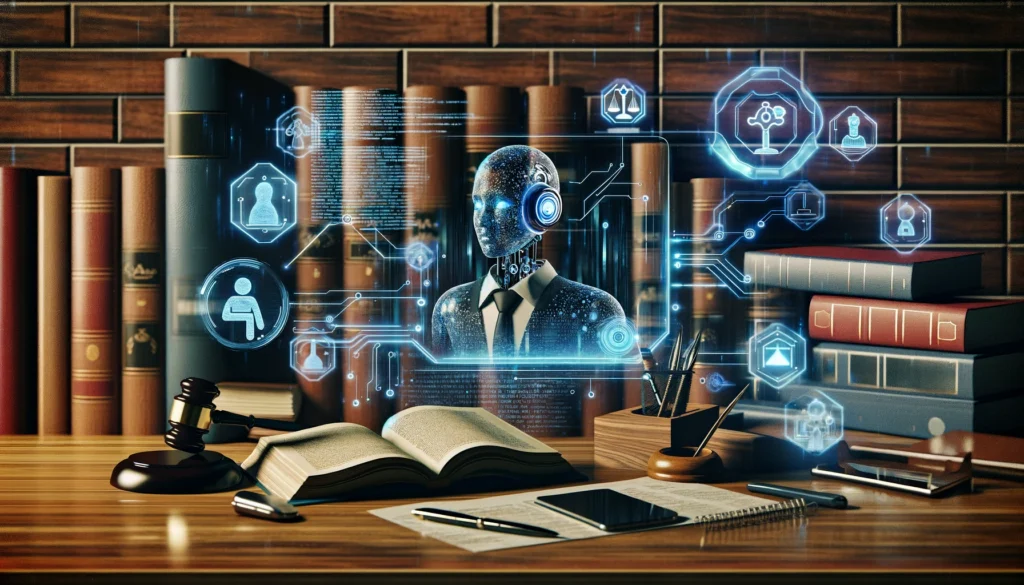
Opening the Estate Planning Toolbox: The Role of AI and LLMs
The landscape of estate planning has seen remarkable advancements with the integration of AI technology. Paralegals and legal professionals are now leveraging these tools to enhance efficiency and accuracy in their work. ChatGPT, a Large Language Model (LLM) developed by OpenAI, is at the forefront of this technological revolution.
ChatGPT boasts key capabilities such as natural language understanding, automated content generation, and data analysis. These features offer potential benefits by streamlining many aspects of estate planning, from client interviews to drafting legal documents. As we delve deeper, we’ll explore how ChatGPT and similar LLMs can transform estate planning tasks into more manageable and precise processes.
Streamlining Client Interview Preparation
Preparation is crucial for successful client interviews. ChatGPT aids in identifying key information beforehand, ensuring a more focused and productive meeting.
By employing ChatGPT, paralegals can generate a checklist of preliminary information needed from clients. Example prompts include:
- “List the essential information to gather from a new estate planning client.”
ChatGPT can also assist in crafting customized interview questions tailored to each client’s background and needs. Prompts such as:
- “Create a set of questions to understand the estate planning needs of a client with a blended family.”
Techniques for detailed information collection can be further refined with ChatGPT, giving paralegals the tools they need for thorough and meaningful client interactions.
With the interview preparation streamlined, the focus shifts to translating client requirements into precise legal documents.
Also read:
Drafting Legal Documents with Precision
Legal document drafting is often repetitive yet demands high accuracy. ChatGPT can automate the generation of standard templates, ensuring consistency across documents.
Automated document generation saves time, allowing paralegals to focus on more complex tasks. ChatGPT can be instructed to produce basic wills, trusts, and other legal documents through prompts like:
- “Generate a template for a simple will.”
Enhancing accuracy involves creating custom prompts that consider specific client details. For example:
- “Draft a will that includes provisions for minor children, a trust, and medical directives.”
These customized prompts ensure that documents are tailored to individual client needs. Moreover, ChatGPT assists in checking for common errors and omissions. A prompt such as:
- “Review this will for any missing clauses or inconsistencies.”
With document accuracy ensured, legal professionals can seamlessly transition to thorough legal research and analysis.
Also read:
Enhancing Legal Research and Analysis
Legal research can be time-consuming, but ChatGPT accelerates the process by retrieving relevant cases using specific prompts. For instance:
- “Find recent case law on estate taxation in California.”
Moreover, interpreting complex legal texts becomes easier with ChatGPT. Prompts like:
- “Summarize the key points of the latest estate tax regulation.”
help demystify intricate statutory language. ChatGPT can also efficiently integrate information across legal databases, improving cross-referencing capabilities. Legal professionals can now streamline their research tasks with greater ease and efficiency.
Having handled research and analysis, the next critical area is improving client communication.
Also read:
Improving Client Communication and Correspondence
Effective communication with clients is paramount. ChatGPT aids in drafting clear and concise emails, helping structure client updates and handling sensitive information appropriately.
For instance, prompts such as:
- “Draft an email updating the client about the status of their estate planning documents.”
ensure the communication is informative and professional. Additionally, ChatGPT can help create client memos that are both clear and compliant with legal standards. Prompts like:
- “Create a memo explaining the new changes in estate tax laws.”
aid in keeping clients informed and educated.
Transitioning from communication to understanding and simplifying complex concepts, we turn to the educative role of AI in estate planning.
Also read:
Simplifying Complex Concepts with AI
Legal jargon can be challenging for clients to grasp. ChatGPT helps break down complex estate planning terms into more understandable language. For instance, prompts like:
- “Explain what a living trust is in simple terms.”
can make these concepts more accessible to clients.
Additionally, AI can aid in developing educational materials that demystify legal concepts. Example prompts include:
- “Create a brochure explaining the basics of estate planning.”
Making complex legal terms more client-friendly paves the way for smoother workflows and enhanced productivity.
Also read:
Boosting Productivity with Workflow Automation
ChatGPT can set up efficient workflows, integrating seamlessly with existing tools and software in law firms. Prompts such as:
- “Outline a workflow for managing client intake forms using ChatGPT.”
can automate routine tasks, significantly boosting productivity. These automations allow legal professionals to focus more on their core responsibilities.
Ensuring the ethical use of AI in legal practice is imperative, as we now explore.
Also read:
Ethical Considerations and Best Practices
While leveraging AI, it is crucial to uphold client confidentiality and data security. Legal professionals must adhere to guidelines for responsible AI use. For example:
- “Ensure that client data used in ChatGPT interactions is anonymized.”
Adhering to ethical considerations ensures that the integrity and trust of the legal profession are maintained.
With ethical practices in place, envisioning the future of estate planning with AI becomes an exciting prospect.
Also read:
The Future of Estate Planning: Next Steps with AI
Emerging trends in AI for legal practice indicate continuous improvements and innovations. Staying abreast of these advancements is imperative for leveraging AI’s full potential.
Ongoing education and adaptation to AI technologies will arm legal professionals with the necessary tools for future competitiveness and efficiency.
Wrapping up, let’s consider the key takeaways and the importance of embracing AI in estate planning.
Also read:
Closing the Loop: Final Thoughts and Takeaways
The incorporation of AI tools like ChatGPT in estate planning offers numerous advantages, from streamlined client interviews to precise legal document drafting and efficient legal research. Maximizing these technologies can significantly enhance productivity and client satisfaction.
Embracing AI is not just a trend but a necessary evolution in estate planning, paving the way for more efficient and informed legal practice.


